The Best Anti Atherosclerosis Diet
The best foods to choose for the Anti Atherosclerosis Diet considered on this page are:
- Fruits and Vegetables
Fruits and Vegetables must form the basis
of a good atherosclerosis
diet
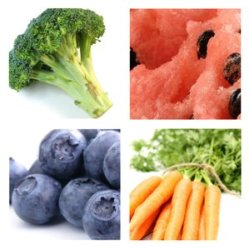
I guess you've heard the following truth several times: Eating fruits and vegetables is good for your heart. Well, this is certainly true if you want to reduce your risk of cardiovascular disease and atherosclerotic build-up in your arteries. They can also reduce the intestinal absorption of cholesterol and lower blood pressure.
What's the magic in fruits and vegetables? No one really knows. Sure, they're full of vitamins, minerals, fibre and antioxidants, but we don't know exactly which ones are most helpful.
So why fruits and vegetables should be eaten liberally in your Anti Atherosclerosis Diet?
According to studies, the risk of coronary artery disease is reduced by about 5% for each additional serving of fruits and vegetables you eat every day!
Whenever scientists try to
mimic the effects of foods with supplements, their formulations simply
don't produce the same protective effects as the real thing.
That means that you have to eat the foods, the whole foods, in order to reap the benefits of fruits and vegetables.
- So supplements can be added to a healthy diet but cannot substitute it!
So what do you need to do?
Include a minimum of 5 but as much as 9 or 10 servings of fruits and vegetables in your Anti
Atherosclerosis Diet, depending on the number of calories you consume.
One serving is equal to 1/2 cup cooked and 1 cup raw vegetables, 1/2 cup of fruit juice or 1 medium piece of fruit.
Soluble Fibre
The Dietary Value for fibre is between 25 to 30 grams a day for optimum health.
I'm sure you're not surprised to hear that the average modern diet hardly reaches 15 g. a day.
Fibre, especially the soluble kind found in beans, fruits and some whole grains, binds to cholesterol in the body and helps remove it along with the waste.
Results from the Nurses' Health Study showed that women who consumed an average of 22.9 g. of fibre a day had a 23% lower risk of heart disease than women who consumed less than 12 g. a day.
Super sources of fibre to include in your Anti Atherosclerosis Diet are:
- Whole grains and flaxseed
- Beans such as chickpeas, kidney beans, lima beans
- Berries such as blueberries, strawberries and raspberries
- Dried fruits like figs, apples and peaches
Dr Jana Klauer, MD, a New York City-based physician who specializes in the biology of fat reduction, recommends fruits and vegetables as the best sources of fibre.
"Per 100 calories, non-starchy fruits and vegetables typically contain about eight times more fiber than whole grains, plus they supply added vitamins and minerals," she says.
Much there is to say about fibre, please read about The Benefits of
Fibre and High Fibre Foods in Your Diet.
Healthy Fats
There was a time when any type of fat would have been considered unhealthy and responsible for clogged arteries.
But things have changed and we now know that omega-3 fats and monounsaturated fats are actually good for your arteries and must be a part of the Anti Atherosclerosis Diet.
Omega-3 fatty acids
Omega-3 fatty acids are present in fatty fish such as wild salmon either fresh or canned, herring, mackerel, sardines, anchovies and rainbow trout, as well as in omega-3-fortified eggs, flaxseed, walnuts and seaweed.
Omega-3 oils are particularly good for the arteries because help reduce inflammation, reduce high blood pressure, decrease triglycerides, raise HDL cholesterol and make blood thinner and less sticky so it's less likely to clot.
The best amount for heart health is 3 servings of one of the omega-3-rich fish every week.
If you cannot manage to eat that much fish, try taking fish oil capsules, which seem to have the same effect.
Read more on the The Benefits of Fish and Fish Oil.
Mono-unsaturated Fats
Mono-unsaturated fats are found mainly in olive oil and canola oil.
People who enjoy a Mediterranean-type diet, typically have lower rates of coronary artery disease. One way they protect you arteries is by reducing blood pressure.
But research shows that it doesn't help to just add monounsaturated fats to your diet - you need to replace some of the unhealthy fats that are already in your diet with better choices.
Read more on The Health Benefits of Olive Oil
Garlic
The active compound in garlic, called allicin seems to be responsible for lowering cholesterol.
It also acts as a powerful antioxidant, it may affect the way LDL cholesterol is used in the body and reduce triglycerides.
There is also some evidence that garlic may also lower homocysteine and reduce blood pressure.
If you can tolerate raw garlic, by all means add it liberally to your Anti Atherosclerosis Diet.
If you don't like it or can't tolerate it take it as a supplement. In fact, most studies of garlic use supplements, so you can too.
Read more on The Health Benefits of Garlic
Plant Sterols and Stanols
These are natural substances found in small amounts in the cell membrane of plants, including fruits, vegetables, legumes, nuts and seeds.
All these foods should feature heavily in the Anti Atherosclerosis Diet.
Sterols and stanols have a structure similar to cholesterol and they compete with cholesterol for access to receptors in the small intestines, blocking its access.
They have been shown to cut the amount of cholesterol absorbed by the small intestines by about 50% and to reduce LDL cholesterol levels by between 5 and 14%.
You can reap these cardiovascular benefits with just 2 grams of sterol/stanol per day, though you can't get that much by eating fruits and vegetables alone.
This is why they've been added to certain spreads and other dairy and dairy-free products. Alternatively, you can take supplements with plant sterols, there's quite a few on the market.
Alcohol
The benefits of alcohol depend, in part, on exactly what your cardiovascular risk factors are.
If your problems is high triglycerides, then you should stay away from alcohol as much as possible, because even small amounts of alcohol increase triglycerides levels dramatically.
For other risk factors, studies show that moderate amounts of alcohol can reduce the risk of coronary artery disease, increase HDL cholesterol and prevent clots.
The right amount seems to be one serving (12 oz of beer; 5 oz of wine; or one shot of hard alcohol) per day for women and no more than two servings for men.
Although all alcohol can benefit your arteries, red wine also contains antioxidants called flavonoids, especially resveratrol, which help prevent cholesterol oxidation.
Don't be tempted to think that if a little is good, more must be better, because this doesn't apply to alcohol. Drinking heavily and binge drinking have no place on the Anti Atherosclerosis Diet because they increase your risk of cardiovascular disease and atherosclerosis.
Antioxidants
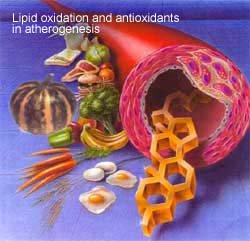
As discussed on the previous page, free radicals, which are harmful oxygen molecules produced in your bodies or ingested with your food or breathed in through the air, are responsible for the damage to cholesterol present in your arteries, causing oxidation, which is what causes cholesterol to stick to your artery walls.
Antioxidants are present in all fruits and vegetables and other foods rich in beta-carotene, vitamin C and E and flavonoids (including green tea, dark chocolate, red wine).
The antioxidants present in these foods seem to protect against atherosclerosis by improving endothelial function, which means the arteries are more flexible and able to deal with the stresses of dietary fat, exercise and increase in blood pressure.
Many studies have been carried out to identify which particular compound in foods are the most effective.
Researchers have found that patients with the highest intake of flavonoids called anthocyanidins - found in cherries, blueberries and other highly coloured fruits - had the lowest risk of heart attack.
Folate-Rich Foods
Almost 30 years ago, a Harvard pathologist suggested that a vitamin deficiency could be a major cause of heart disease. The theory sounded so wacky that nobody listened.
Now nobody is laughing and researchers are busy investigating the relationship between folate status and heart disease.
Folate is a B vitamin, abundant in beans and dark green leafy vegetables.
This vitamin is responsible for lowering levels of an amino acid called homocysteine. While the body needs homocysteine to produce muscle and bone tissue, in large amounts, it can injure blood vessels, causing hardening of the arteries and it's a an important contributing factor in heart disease.
It appears that homocysteine can be brought down easily with modest amounts of folate in the diet.
The Daily Value for folate is 400 micrograms and can be found in foods such as spinach (one cup of cooked spinach contains 263 mcg). Half a cup of lentils contains 179 mcg and a glass of orange juice contains 36 mcg.
We've discussed so far which foods to include in your Anti Atherosclerosis Diet, but they will do you little good if you keep eating foods that cause oxidation to your cholesterol and increase other risk factors. Find out what these foods are in the next article: The Anti Atherosclerosis Diet - Foods to Avoid
Supplements That Might Help You Fight
Heart Disease
|
|
|
Search for information on this site:
Receive Discover the Power of Healing Foods! Free
Newsletter
Supplements to Help You Fight Heart Disease
Even more effective than fish oil in preventing Heart Disease! Nutrigold's Antarctic Krill Oil contains natural levels of EPA and DHA, as well as naturally occurring astaxanthin, a powerful antioxidant that confers health maintaining properties (and gives krill oil the red colour), as well as protecting the krill oil from oxidation preserving Omega 3 EFA content and keeping the product fresh.
Nutrigold EPA Marine Fish Oil capsules
contain the omega 3 essential
fatty acids EPA and DHA, which contribute to normal function of the
heart, in vegetarian capsule shells. The premium oil, sourced from
ecologically clean seas, undergo selective absorption of pollutants like
heavy metals, dioxides and PCBs to ensure purity.
Nutrigold Magnesium Citrizorb®
provides 100mg elemental magnesium per
capsule in a highly bioavailable and bioactive organic citrate form.
Blend of natural botanicals including psyllium husk, fennel, garlic, inulin,
peppermint and papaya, L-Glutamine and Bifidobacteria
Homocysteine is a common amino acid in your blood. You get it mostly from eating meat. High levels of it are linked to early development of heart disease. In fact, a high level of homocysteine is a risk factor for heart disease. It's associated with low levels of vitamins B6, B12, and folate, as well as renal disease.
Nutrigold Superlec Plus is a natural lecithin powder, delivering high potency phosphatidyl choline (32%) and plant sterols including beta-sitosterol. A daily intake of at least 0.8g plant sterols contributes to the maintenance of normal blood cholesterol levels. Superlec Plus powder is easily blended into food, juices or smoothies.
Healing Foods for Heart Disease Pages:
Reverse
Heart Disease With Healing Foods
Healing Foods for Heart Disease
Most Popular
Pages:
The Best "Fish Oil" Supplement is Not Made from Fish
Bananas for High Blood
Pressure

Elimination Diet for IBS and Other Food
Sensitivities
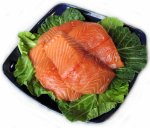
Healing Foods for Heart
Disease
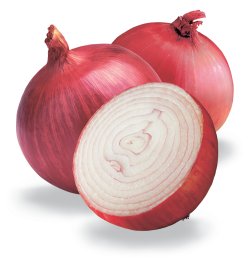





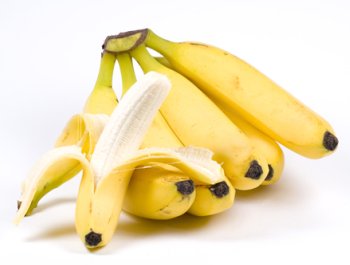
New! Comments
Have your say about what you just read! Leave me a comment in the box below.